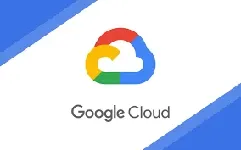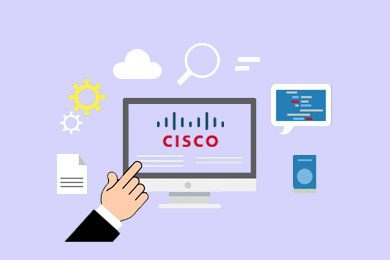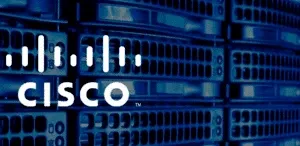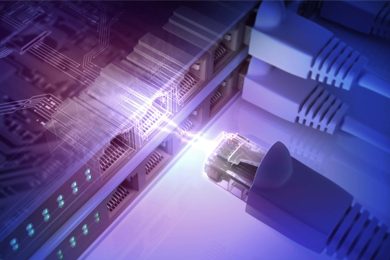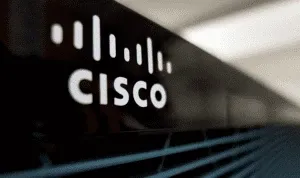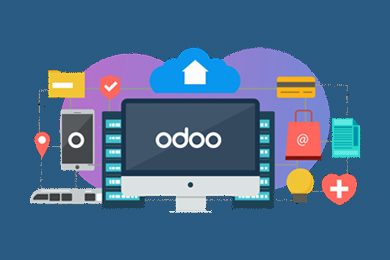This plan includes
- Limited free courses access
- Play & Pause Course Videos
- Video Recorded Lectures
- Learn on Mobile/PC/Tablet
- Quizzes and Real Projects
- Lifetime Course Certificate
- Email & Chat Support
What you'll learn?
- What is Cloud
- Why to learn about Google cloud
- How to create Google cloud account
- What are computation options available in Google like GCE, App engine, GKE
- How to select the right computation option in Google Cloud
- What are data storage options in Google Cloud like persistent disk, Cloud storage
Course Overview
This course will help you in becoming a Google Cloud Certified Architect. It will help in learning what are the various cloud offerings in Google cloud and how to use those offerings.
This is an ideal course to learn about Google cloud for all developers and cloud engineers.
It will help in boosting your career.
This course covers
1. What is Cloud.
2. Why use Google Cloud
3. What are resources in Cloud.
4. What is identity or member in cloud.
5. How to use IAM in Google cloud and ensure security in Cloud
6. What are the compute offerings in GCP and how to use those compute offerings. It also covers where to use which compute offerings
7. What are the data storage services offered in Google Cloud and what are the best practices to store and analyze data in Google Cloud.
8. How to distribute request traffic among application backends using various load balancer options in GCP
9. How to migrate existing Bigdata applications in GCP.
10. How to set up a new Bigdata ETL pipeline in Google Cloud by using Dataflow
11. How to capture and analyze logs in GCP
12. How to monitor applications in Google Cloud
13. How to set up CI/CD pipeline in Google Cloud
14. How to use IAC in Google cloud.
Next level course
Excel as Google Certified Cloud Architect
Pre-requisites
- Just a basic understanding of Cloud computing is good enough for this course.
- Having a developer background will make it easy to understand the concepts defined in this course
Target Audience
- Having a developer background will make it easy to understand the concepts defined in this course
- Any one who want to learn GCP
Curriculum 85 Lectures 05:24:32
Section 1 : Course Introduction
Section 2 : Starting with Google Cloud
- Lecture 1 :
- Google Cloud Introduction
- Lecture 2 :
- Create GCP Account
- Lecture 3 :
- How to use Cloud Console
- Lecture 4 :
- Cloud Locations - Regions And Zone
- Lecture 5 :
- Google Cloud Services Overview
- Lecture 6 :
- GCP Interfaces
- Lecture 7 :
- How to use Cloud Shell
- Lecture 8 :
- Cloud SDK Installation & Setup
Section 3 : IAM & Resource Hierarchy
- Lecture 1 :
- Resource Management & IAM Introduction
- Lecture 2 :
- What is Resource
- Lecture 3 :
- Resource Hierarchy
- Lecture 4 :
- Resource Hierarchy Benefits
- Lecture 5 :
- Demo - Create and Manage project
- Lecture 6 :
- Billing Account Introduction
- Lecture 7 :
- IAM Introduction
- Lecture 8 :
- What is Member
- Lecture 9 :
- What is Service Account
- Lecture 10 :
- Roles and Permission
- Lecture 11 :
- Demo - Assign Role to Member
- Lecture 12 :
- What is Policy
Section 4 : Compute Services
- Lecture 1 :
- Compute Engine - GCE
- Lecture 2 :
- Machine Type & CPU Platform
- Lecture 3 :
- What is GPU
- Lecture 4 :
- Demo - How to Choose Machine Type
- Lecture 5 :
- Disk Types
- Lecture 6 :
- Demo - Create Compute Engine VM Instance & Run Wen Server
Section 5 : Google App Engine (GAE)
- Lecture 1 :
- Application Description File - App.Yaml
- Lecture 2 :
- Flexible Environment
- Lecture 3 :
- Standard Environment
- Lecture 4 :
- Demo - Deploy Service in Standard Environment
- Lecture 5 :
- App Engine Application Components
- Lecture 6 :
- App Engine Features
- Lecture 7 :
- App Engine Comparison
- Lecture 8 :
- App Engine Introduction
- Lecture 9 :
- Demo - Create App Engine Application
Section 6 : GKE - Kubernetes Engine
- Lecture 1 :
- Demo - Create Kubernetes Cluster
- Lecture 2 :
- Node Pool
- Lecture 3 :
- Node & Pod
- Lecture 4 :
- GKE Introduction
Section 7 : Cloud Function
- Lecture 1 :
- Demo - Create Cloud Function
- Lecture 2 :
- How Cloud Function Works
- Lecture 3 :
- Cloud Function Introduction
Section 8 : Load Balancer
- Lecture 1 :
- Load Balancer Introduction
- Lecture 2 :
- Demo - Use Global HTTP External Load Balancer
Section 9 : Networking
- Lecture 1 :
- VPC Introduction
- Lecture 2 :
- Subnet Introduction - What is Subnet & How it works
- Lecture 3 :
- Default VPC - What is default VPC
- Lecture 4 :
- Types of VPC
- Lecture 5 :
- Create Custom VPC with Auto Mode
- Lecture 6 :
- Create Custom VPC with Custom Mode
- Lecture 7 :
- Custom VPC Types
- Lecture 8 :
- IP addresses
- Lecture 9 :
- Firewall Rules Introduction
- Lecture 10 :
- How to Create Firewall Rule
- Lecture 11 :
- Demo - Create Firewall Rule
- Lecture 12 :
- What is Route & How it works
Section 10 : Cloud Storage
- Lecture 1 :
- Storage Solution Options in Cloud
- Lecture 2 :
- Cloud Storage Introduction
- Lecture 3 :
- Bucket & Object
- Lecture 4 :
- Demo - Create Bucket & Object
Section 11 : Cloud SQL
- Lecture 1 :
- Introduction to Cloud SQL
- Lecture 2 :
- Demo - Create MySQL Instance via Cloud SQL
- Lecture 3 :
- Demo - Create Database and Tables
Section 12 : Cloud Spanner
- Lecture 1 :
- Cloud Spanner Introduction
- Lecture 2 :
- Demo - Create Cloud Spanner Instance
- Lecture 3 :
- Demo - Create Database in Cloud Spanner
Section 13 : No SQL Database Options in GCP
- Lecture 1 :
- Cloud DataStore Introduction
- Lecture 2 :
- Demo - Use Firestore in GCP
- Lecture 3 :
- BigTable Introduction
- Lecture 4 :
- Demo - Create BigTable Instance
- Lecture 5 :
- BigQuery Introduction
- Lecture 6 :
- Demo - Use Public Dataset in BigQuery
- Lecture 7 :
- Caching with Memorystore
Section 14 : CI/CD & IAC via Deployment Manager & Machine Learning
- Lecture 1 :
- How CI/CD Pipeline Works in GCP
- Lecture 2 :
- Deployment Manager (IAC) Introduction
- Lecture 3 :
- Machine Learning API
Section 15 : Cloud Operation
- Lecture 1 :
- Logging & Monitoring Service
- Lecture 2 :
- Cloud Logging
- Lecture 3 :
- Cloud Monitoring Introduction
Section 16 : Big Data in Cloud
- Lecture 1 :
- Big Data Introduction
- Lecture 2 :
- Dataproc Introduction
- Lecture 3 :
- Dataflow Introduction
- Lecture 4 :
- Pub/Sub Introduction
Section 17 : What's Next
- Lecture 1 :
- What's Next After This
Our learners work at
Frequently Asked Questions
How do i access the course after purchase?
It's simple. When you sign up, you'll immediately have unlimited viewing of thousands of expert courses, paths to guide your learning, tools to measure your skills and hands-on resources like exercise files. There’s no limit on what you can learn and you can cancel at any time.Are these video based online self-learning courses?
Yes. All of the courses comes with online video based lectures created by certified instructors. Instructors have crafted these courses with a blend of high quality interactive videos, lectures, quizzes & real world projects to give you an indepth knowledge about the topic.Can i play & pause the course as per my convenience?
Yes absolutely & thats one of the advantage of self-paced courses. You can anytime pause or resume the course & come back & forth from one lecture to another lecture, play the videos mulitple times & so on.How do i contact the instructor for any doubts or questions?
Most of these courses have general questions & answers already covered within the course lectures. However, if you need any further help from the instructor, you can use the inbuilt Chat with Instructor option to send a message to an instructor & they will reply you within 24 hours. You can ask as many questions as you want.Do i need a pc to access the course or can i do it on mobile & tablet as well?
Brilliant question? Isn't it? You can access the courses on any device like PC, Mobile, Tablet & even on a smart tv. For mobile & a tablet you can download the Learnfly android or an iOS app. If mobile app is not available in your country, you can access the course directly by visting our website, its fully mobile friendly.Do i get any certificate for the courses?
Yes. Once you complete any course on our platform along with provided assessments by the instructor, you will be eligble to get certificate of course completion.
For how long can i access my course on the platform?
You require an active subscription to access courses on our platform. If your subscription is active, you can access any course on our platform with no restrictions.Is there any free trial?
Currently, we do not offer any free trial.Can i cancel anytime?
Yes, you can cancel your subscription at any time. Your subscription will auto-renew until you cancel, but why would you want to?
Instructor

147232 Course Views
3 Courses



 Tech & IT
Tech & IT
 Business
Business
 Coding & Developer
Coding & Developer
 Finance & Accounting
Finance & Accounting
 Academics
Academics
 Office Applications
Office Applications
 Art & Design
Art & Design
 Marketing
Marketing
 Health & Wellness
Health & Wellness
 Sounds & Music
Sounds & Music
 Lifestyle
Lifestyle
 Photography
Photography



